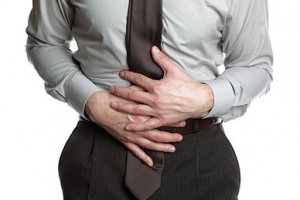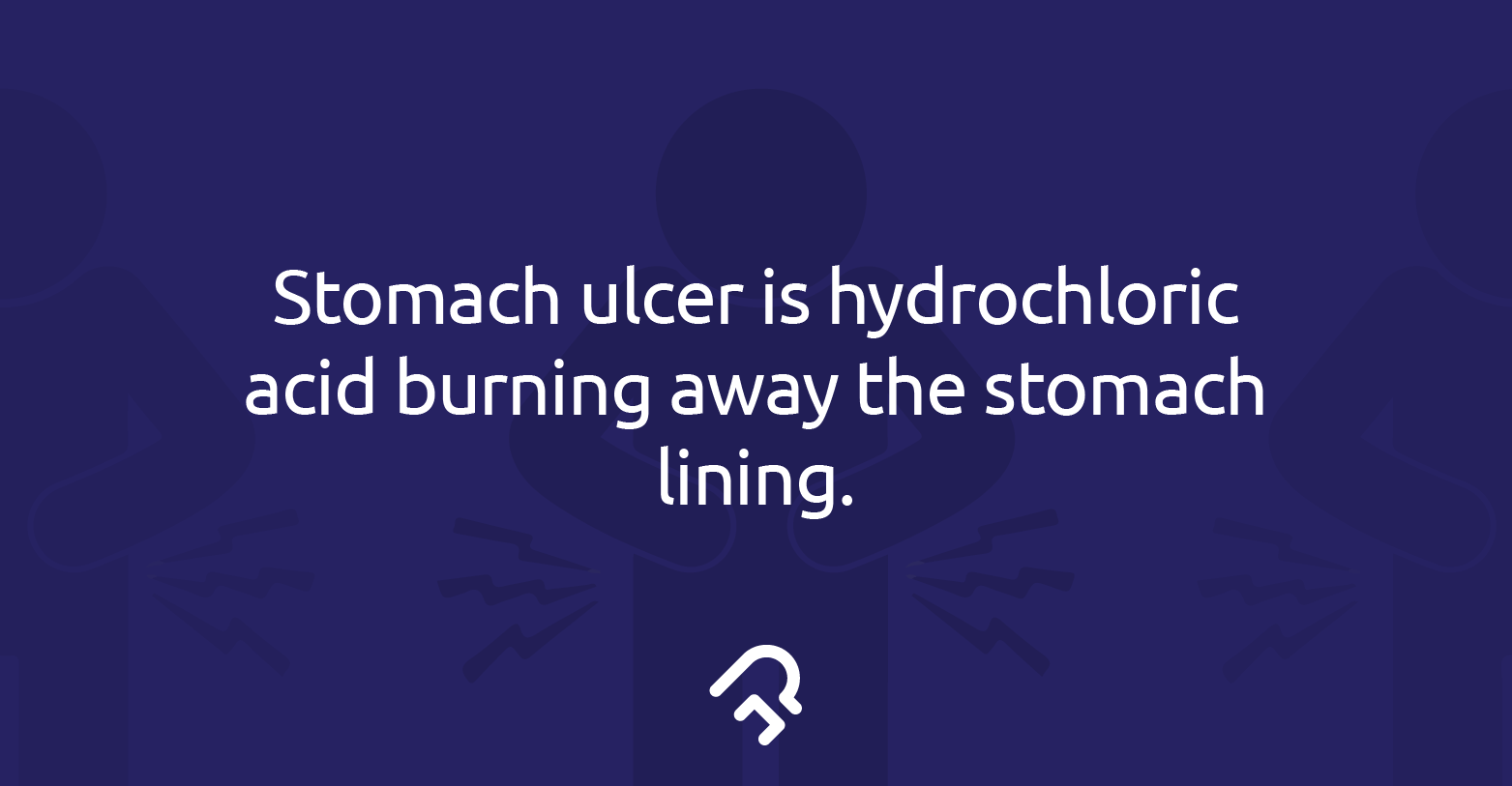Stomach Ulcer: Symptoms, Causes & Treatment
By Dr. Nikita Toshi +2 more

Get,

to manage your symptom
Get your,


4 Cr+ families
benefitted

OTP sent to 9988776655



You’ve successfully subscribed to receive
doctor-approved tips on
Whatsapp

Get ready to feel your best.

Hi There,
Download the PharmEasy App now!!


Register to Avail the Offer
Send OTPBy continuing, you agree with our Privacy Policy and Terms and Conditions

Hi There,
Sign up on PharmEasy now!!
Trusted by 4 crore+ families

OTP sent to 9988776655



You have unlocked 25% off on medicines




Code: NU25
By Dr. Nikita Toshi +2 more
Table of Contents
Stomach ulcers are sores in the lining of the stomach. These sores occur when the acid that generally aids in the digestion of the food attacks the tissue. The most common cause is a bacterial infection involving Helicobacter pylori but long-term use of nonprescription or prescription pain medication can also result in this condition. Know the stomach ulcer facts to avoid them!


Barry Marshall, along with his research partner J. Robin Warren, found out the cause and effect between helicobacter pylori bacterium infection and stomach ulcer and cancer. They discovered that the Helicobacter pylori bacterium is the cause of gastric disorders or stomach ulcers. Their finding proved false the previous medical record that said gastric disorder or ulcer is only caused by stress, spicy foods, and excessive consumption of food or drinks that contain acid.
Peptic ulcer disease (PUD) is a global problem with a lifetime risk of development ranging from 5% to 10%. Overall, there is a decrease in the incidence of PUD worldwide due to improved hygienic and sanitary conditions combined with effective treatment and judicious use of NSAIDs. Duodenal ulcers are four times more common than gastric ulcers. Also, duodenal ulcers are more common in men than in the woman.
Dr. M.G. Kartheeka, MBBS, MD(Pediatrics)
These are the most common symptoms that you should be aware of-
If you’re experiencing the above symptoms, visit your doctor at the earliest. One of the most essential stomach ulcer facts states that for diagnosing a stomach ulcer, your doctor may request an upper gastrointestinal endoscopy or gastroscopy. Note that if your doctor has asked for a gastroscopy, you will need to fast for 12 hours before the procedure.
Peptic ulcer disease is a life-long condition and ulcers remain active with an unchanged potential for complications such as haemorrhage and perforation, in my practice, most patients experience recurrence of their peptic ulcer after discontinuation of the healing therapy.
Dr. Ashish Bajaj, M.B.B.S., M.D. in Clinical Pharmacology and Toxicology
Treatment may vary depending on the cause of your ulcer. Most ulcers can be treated with a prescription from your doctor but in rare cases, surgery may be required.
If your stomach ulcer is the result of H. pylori, you’ll need antibiotics. For mild-to-moderate stomach ulcers, your doctor will usually prescribe the following medications:
Protecting yourself from stomach ulcer is all about prevention and early action. By being aware of the risks and living a healthy lifestyle, you can greatly reduce your chances of getting this painful and dangerous condition.
Dr. Arpit Verma, MBBS, MD (Pharmacology)
When diagnosed with a stomach ulcer, you’ll do well to avoid the consumption of the following:
Coffee, carbonated beverages and citrus juices are all acidic and may aggravate the stomach. Since it’s the acidity that causes the problem, it won’t matter whether you use caffeinated versions of the drink or not, either. In such cases, it is advised to follow a diet with non-acidic juices or plain water.
If citrus juices are too acidic for an ulcer diet, then the fruits themselves are definitely out. You’ll need to wait for the ulcer to clear up before you can enjoy your grapefruits, tomatoes, lemons and oranges!
This one is more subjective, as it can be a harmful trigger for some and does not have much effect on others. Unless you’re willing to experiment, it’s best to be cautious and avoid the chillis, hot peppers and masala.
Deep-fried, buttery, overly-processed or even a thick slab of meat, fat should be kept to a minimum when possible in a stomach ulcer diet. Fat can make your stomach produce more acid than usual.
Milk’s ability to coat the tongue and throat is one of the reasons it’s able to combat spicy food, so it’s not unreasonable to think it can do something similar to the stomach. Drinking milk can cause short-term relief from stomach ulcer pain but is best left out of the diet in the long term. Remember: milk has more fat in it than most drinks, which means it can cause more acid production.
Another one from the common stomach ulcer facts is that smoking can promote acid production and further weaken the mucus lining. If you smoke, cut back or quit. Read more about the health effects of smoking.
Alcohol consumption irritates and erodes the lining of the stomach and alcohol abuse on its own is considered a risk factor for developing an ulcer.
Also Read: 12 Natural Remedies For Mouth Ulcers
Excess smoking, alcohol consumption and NSAID (Nonsteroidal Anti-inflammatory Drugs) use are all considered risk factors for developing a stomach ulcer. Standard lifestyle changes like cutting back on drinks or cigarettes or finding alternative pain relievers are best considered alongside an ulcer diet, which is one of the most common stomach ulcer facts. Common sense steps to prevent the spread of H. pylori can also be utilized, like washing your hands before handling food and cleaning fruits and vegetables.
Read More: 5 Causes of Recurring Stomach Pain
Disclaimer: The information provided here is for educational/awareness purposes only and is not intended to be a substitute for medical treatment by a healthcare professional and should not be relied upon to diagnose or treat any medical condition. The reader should consult a registered medical practitioner to determine the appropriateness of the information and before consuming any medication. PharmEasy does not provide any guarantee or warranty (express or implied) regarding the accuracy, adequacy, completeness, legality, reliability or usefulness of the information; and disclaims any liability arising thereof.
Links and product recommendations in the information provided here are advertisements of third-party products available on the website. PharmEasy does not make any representation on the accuracy or suitability of such products/services. Advertisements do not influence the editorial decisions or content. The information in this blog is subject to change without notice. The authors and administrators reserve the right to modify, add, or remove content without notification. It is your responsibility to review this disclaimer regularly for any changes.

Leave your comment...
Comments